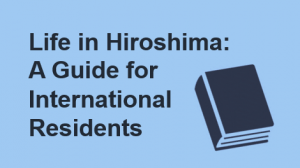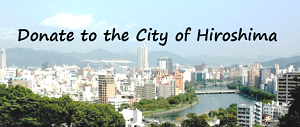本文
Promoting the Culture of Peace
Introduction
The City of Hiroshima is the first city in the world to experience an atomic bombing in war.
Our hibakusha experienced the horrors of the bombing, and their will for peace is why
our city continues to strive for the peaceful coexistence and prosperity of all humanity, as
well as the realization of a truly peaceful world.
Our city’s peace initiatives are supported by two laws: the Constitution of Japan and the
Hiroshima Peace Memorial City Construction Law. The preamble of the Constitution of
Japan stipulates: “We, the Japanese people, desire peace for all time and are deeply
conscious of the high ideals controlling human relationship, and we have determined to
preserve our security and existence, trusting in the justice and faith of the peace-loving
peoples of the world.”
The Hiroshima Peace Memorial City Construction Law, which was established under the
Constitution, designates our city “as a peace memorial city to symbolize the human ideal
of sincere pursuit of genuine and lasting peace,” and states: “The Mayor of Hiroshima
shall…establish a program of continuous activity toward completion of the Hiroshima
Peace Memorial City.” It is based on these laws that we continue efforts toward the
abolition of nuclear weapons and realization of lasting world peace.
To make the goals stated in these laws a reality, it is necessary to create a society and an
environment that makes it possible for each and every citizen not only to prefer peace for
the sake of leading better, happier lives, but to take action for peace in their day-to-day
lives. The job of planning a place where these things are possible falls, fundamentally, to
municipalities, and I believe that this planning must be underpinned by the concept of
the culture of peace. As such, the City of Hiroshima is focused on helping to enable the
culture of peace to take root in civil society, as well as to foster peace awareness―that is,
working to promote the culture of peace.
But we cannot do this alone. Cities around the world must unite and cooperate in working
toward promoting the culture of peace.
When we work together and strive for this goal, the hibakusha will for peace becomes a
shared value in civil society. That shared value then becomes the consensus of civil
society, and impacts world leaders, including those in nuclear-weapon-states. Only then
will our leaders make the choice to pursue long-term security that does not rely on
nuclear weapons for the sake of humanity, and disregard short-sighted security that
focuses solely on their own nations.
May 2023
MATSUI Kazumi
Mayor
The City of Hiroshima
Index
1) The Atomic Bombing and the Will of Hiroshima
2) Becoming an International Peace Culture City
3) What is the Culture of Peace?
4) The Significance of Promoting the Culture of Peace
5) Promoting the Culture of Peace is the Role of Cities
6) The Will for Peace Based on the Realities of the Atomic Bombing
7) Promotion of the Culture of Peace by Mayors for Peace
Conclusion: Importance of Citizen-Led Initiatives
Download
Inquiries regarding this page
Peace Promotion Division, Citizens Affairs Bureau
Tel: 81-82-242-7831/Fax: 81-82-242-7452
E-mail: peace@city.hiroshima.lg.jp









